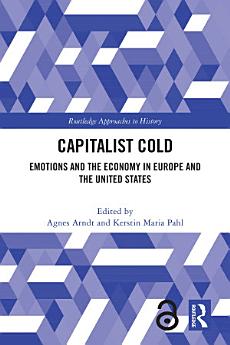Capitalist Cold: Emotions and the Economy in Europe and the United States
About this ebook
To explore the role of emotions in economic practices and imaginaries, the volume presents case studies including original rereadings of well-known texts such as Theodor Adorno and Max Horkheimer’s Dialectic of Enlightenment, as well as forays into little-known histories such as representations of capitalists in post-war Turkey, and how art dealers strategically used emotions for navigating the market in interwar Germany. Rather than simply reproducing the image of “cold capitalism”, however, it offers nuanced investigations into the ambivalent images evoked by living and working within economic structures. In late-socialist Poland, capitalism felt “warm” and “fuzzy”, while pop culture of the seventies found it not destructive but cool, hip, and edgy.
This book is aimed at students and scholars of social, economic, and cultural history.
The Open Access version of this book, available at www.taylor francis.com, has been made available under a Creative Commons Attribution- Non- Commercial- No Derivatives
(CC- BY- NC- ND) 4.0 license.
About the author
Agnes Arndt is a senior researcher at the Hannah Arendt Institute for Totalitarianism Studies and has worked extensively on Modern European History and the Cultural History of Economics. She is the author of Intellektuelle in der Oppostion (2007) and Rote Bürger (2013) and the co-author of Feeling Political (2022). [email protected]
Kerstin Maria Pahl is a post-doctoral researcher at the Max Planck Institute for Human Development specializing in the cultural history of the Anglophone world. Her publications include Revisiting the History of Emotions (ed. 2023) and The Visual Worlds of Life Writing. Portraits and Biographies in England, 1680-1750 (2024). [email protected]




